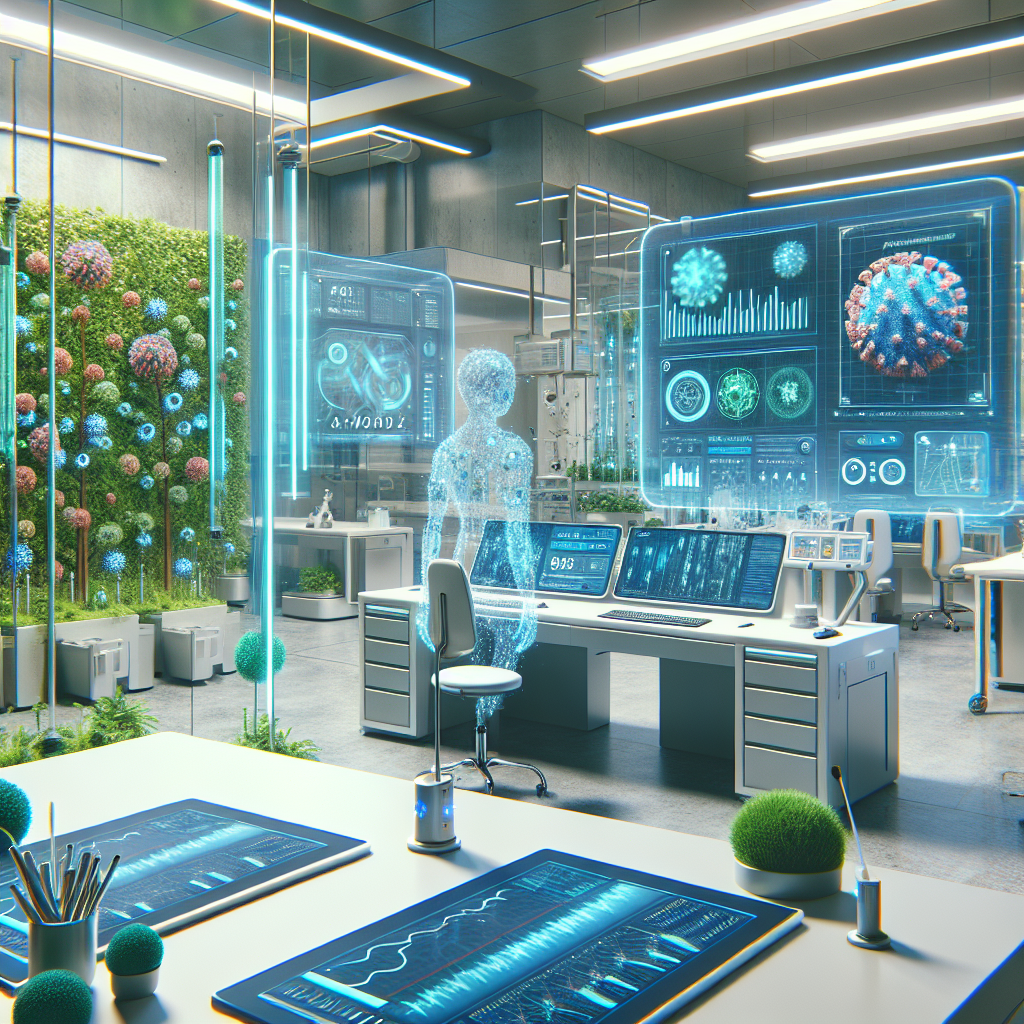The Power of AI in Fighting Pandemics Sustainably
The outbreak of a pandemic is a profound challenge that impacts millions of lives globally. It disrupts societies, economies, and the very fabric of human existence. In this milieu, Artificial Intelligence (AI) emerges as a potent ally in the battle against pandemics, offering innovative, efficient, and sustainable solutions. The integration of AI in managing health crises promises not only to mitigate the immediate threats but also to reform the landscape of public health responses for future challenges.
AI: The Vanguard in Pandemic Management
AI’s involvement in fighting pandemics spans from early detection and tracking of outbreaks to vaccine development, patient care, and managing the aftermath. Its ability to process and analyze vast amounts of data at an unprecedented speed allows for real-time insights and actions, a critical factor in containing and managing infectious diseases.
Early Detection and Monitoring
The initial stages of a pandemic are crucial. AI-powered tools can scan, detect, and analyze outbreaks from various data sources, including social media, news reports, and governmental communications, often even before official reports are made. This early warning system enables quicker responses, potentially saving thousands of lives by containing the spread more effectively.
Accelerating Vaccine Development
Traditionally, vaccine development is a time-consuming process, often taking years to accomplish. AI accelerates this process by predicting how viral proteins will fold or by identifying potential vaccine candidates. This was evident in the recent COVID-19 pandemic, where AI-assisted research played a significant role in the rapid development of effective vaccines.
Enhancing Patient Care
AI technologies, through predictive analytics, can forecast patient outcomes and optimize care delivery. AI-driven diagnostic tools can swiftly analyze images, symptoms, and test results to assist in rapid diagnosis, while chatbots and virtual health assistants provide valuable information and support to patients, reducing the burden on healthcare systems.
Supply Chain and Resource Management
The logistics of managing medical supplies, personal protective equipment, and vaccines during a pandemic are complex. AI offers solutions to optimize these supply chains, predict demand, and ensure the efficient allocation of resources, thereby minimizing waste and enhancing the sustainability of response efforts.
The Role of AI in Post-Pandemic Recovery
The aftermath of a pandemic requires significant efforts in recovery and rebuilding. AI can play a pivotal role in analyzing data to inform better policies for economic recovery, mental health strategies, and strengthening healthcare systems against future pandemics. Moreover, AI can assist in monitoring and preventing the resurgence of the disease, ensuring a more resilient public health infrastructure.
Sustainability and Ethical Considerations
The integration of AI in pandemic response also prompts a discussion on sustainability and ethics. The use of AI can lead to more sustainable healthcare practices by optimizing resources, reducing waste, and ensuring that interventions are targeted and efficient. However, it is imperative to address ethical considerations such as data privacy, bias in AI algorithms, and the accessibility of AI technologies across different regions to ensure that the benefits of AI are equitably distributed.
FAQs
How does AI help in early detection of pandemics?
AI helps in early detection by analyzing vast amounts of data from various sources to identify unusual patterns that could indicate an outbreak. This allows for quicker responses and containment strategies.
Can AI replace human decision-making in pandemic management?
While AI can provide valuable insights and recommendations, it cannot replace human decision-making. The complexity of ethical, social, and cultural factors in pandemic management requires human oversight and judgment.
What are the limitations of AI in fighting pandemics?
Limitations of AI include data quality and availability issues, the potential for bias in algorithms, and the need for significant computational resources. Moreover, AI solutions must be integrated with traditional public health strategies to be effective.
How does AI contribute to the sustainability of pandemic responses?
AI contributes to the sustainability of pandemic responses by optimizing resource allocation, reducing waste, and ensuring that interventions are targeted and efficient. This leads to more effective and sustainable healthcare practices.
What measures can be taken to address ethical concerns related to AI in public health?
To address ethical concerns, it is crucial to establish transparent and inclusive policies on data use, ensure the unbiased development of AI algorithms, and promote equitable access to AI technologies. Additionally, continuous monitoring and evaluation of AI applications in public health are essential to mitigate any unintended consequences.
In conclusion, the power of AI in fighting pandemics sustainably is undeniable. From early detection and monitoring to enhancing patient care and managing resources efficiently, AI has the potential to revolutionize our approach to pandemic preparedness and response. However, for AI to fulfill its promise, it is essential to navigate the ethical and practical challenges it presents thoughtfully. By doing so, we can harness the full potential of AI to not only fight pandemics more effectively but also to build a more resilient and sustainable public health infrastructure for the future.

